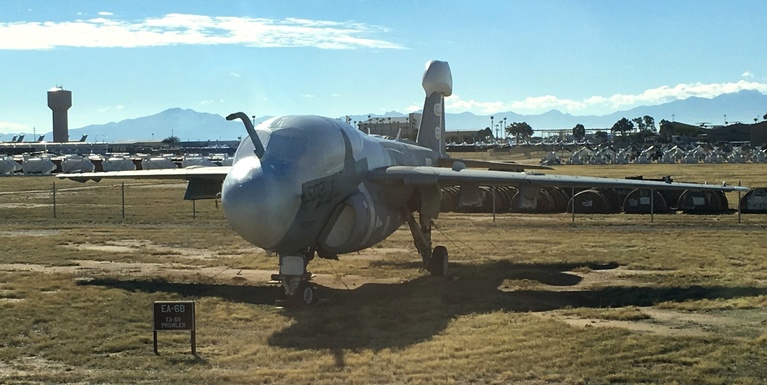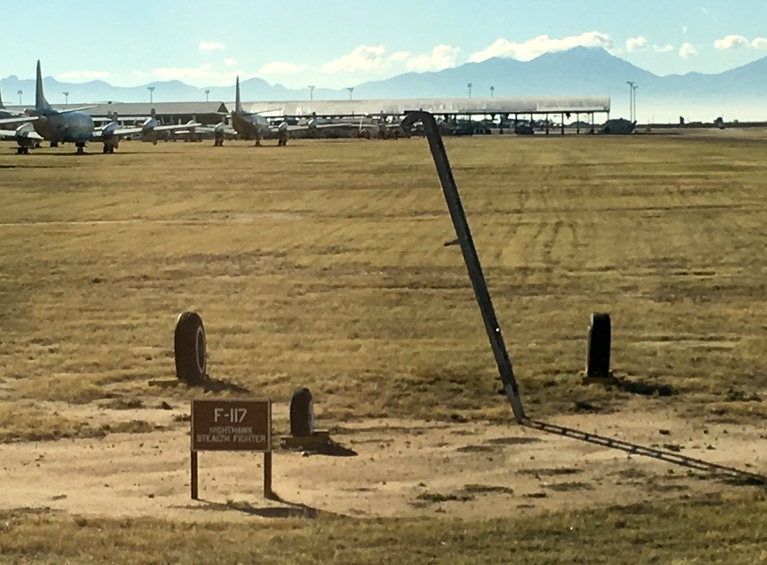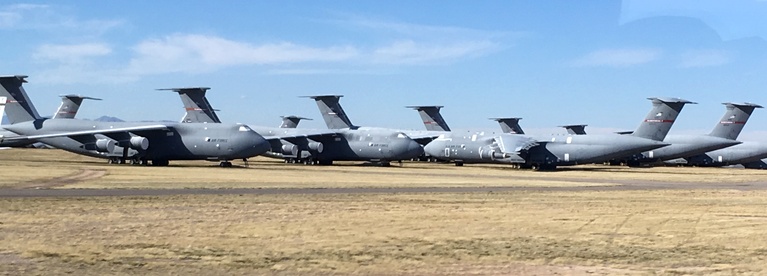Voyager is a huge park with 1,576 sites. There are all kinds of activities including sports, crafts, a golf course, spa, health center, and the all-important pickleball. Our next door neighbors had come for the winter. After a week in residence, they hadn’t yet left the property.
We figured out that this type of place just isn’t our style. We were much more interested in seeing the area and appreciating the natural environment surrounding Tucson.
Arizona Sonora Desert Museum
We learned after our visit that this is the 2nd most popular attraction in Arizona, only surpassed by the Grand Canyon. The museum is located adjacent to Saguaro National Park, and the desert scenery is gorgeous. The peaks below are eighty miles away in Mexico.

The primary emphasis is exhibit of desert animals in naturalistic settings. Our favorites were the walk-in hummingbird aviary and the raptor free flight. Several species of hummers lived in the walk-in aviary and happily buzzed between visitors. The most interesting raptors were the Harris’s hawks. They have adapted to desert life by hunting in family groups rather than solo.
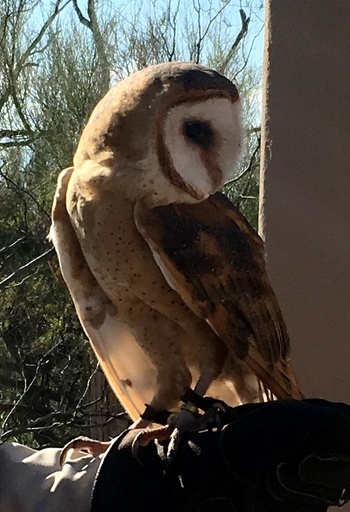
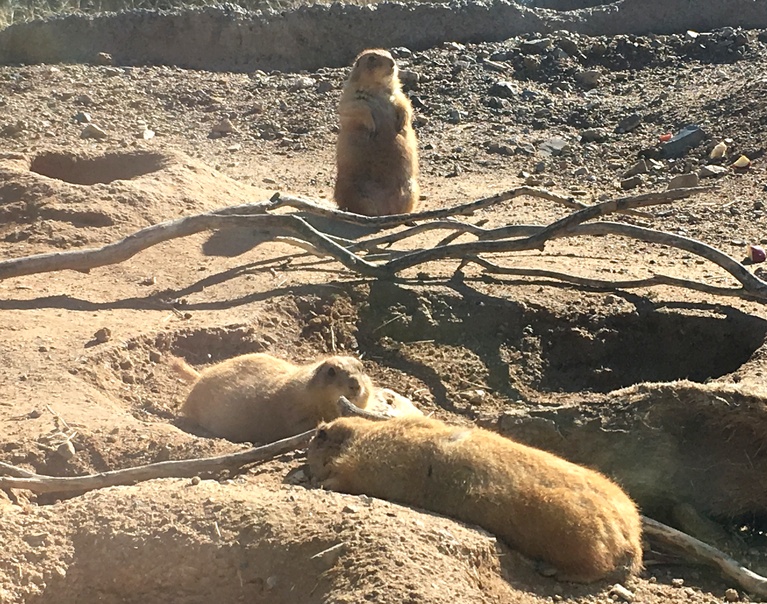
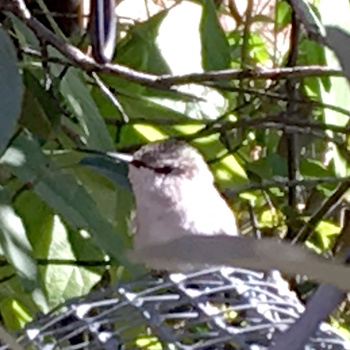
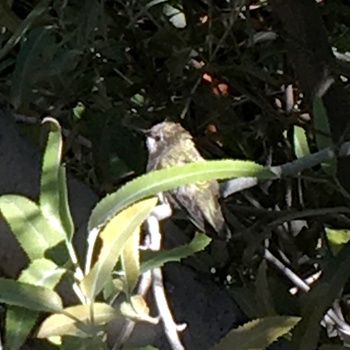
We learned a lot about saguaros. They live for hundreds of years. They can take up vast quantities of water, as much as 80 pounds per foot; some large ones weigh tons. They can last for months without additional water. A woody set of ribs support the cactus, and provide a wood substitute for desert dwellers.
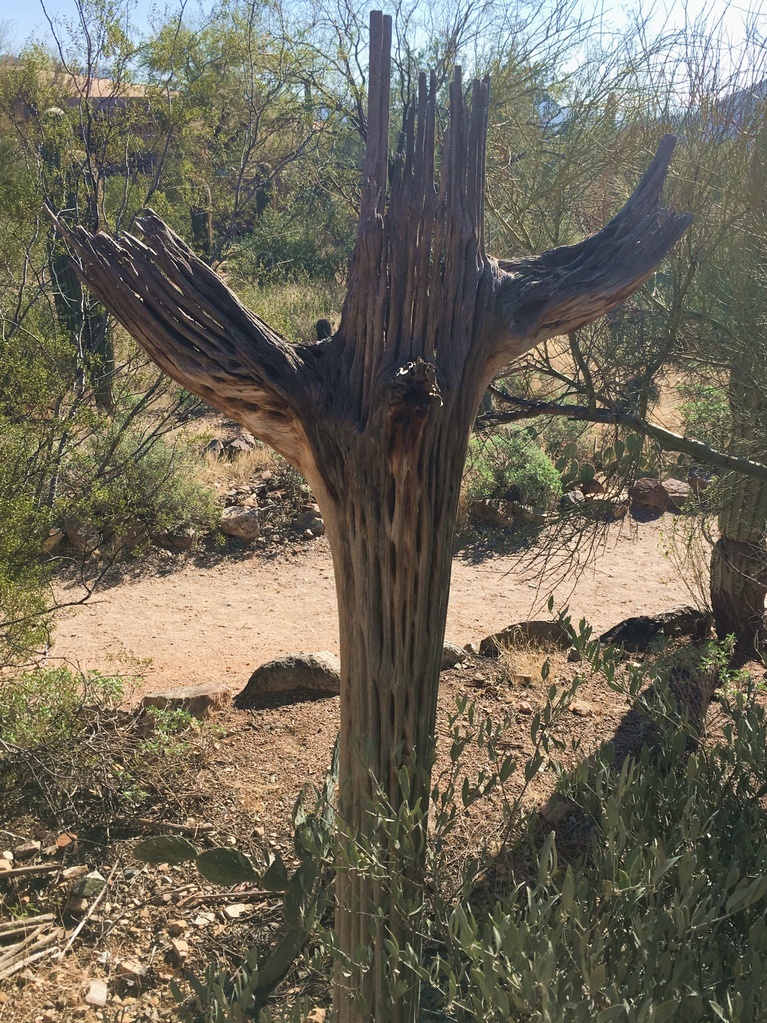
Mission San Xavier del Bac
The Spanish Jesuit Father Kino established a mission to the Tohono O’odam people here in 1692. In 1783 a Franciscan missionary began construction of the church. It is in the Spanish Baroque style, with elaborate paintings and carved statuary. It is a National Historic Landmark, and an active Catholic Church. The left tower has been restored and work will soon start on the right. The right tower looks unfinished because it is – the builders ran out of money and the workers left, returning to Mexico. The native people took care of the church after it was abandoned; eventually the missionaries returned.
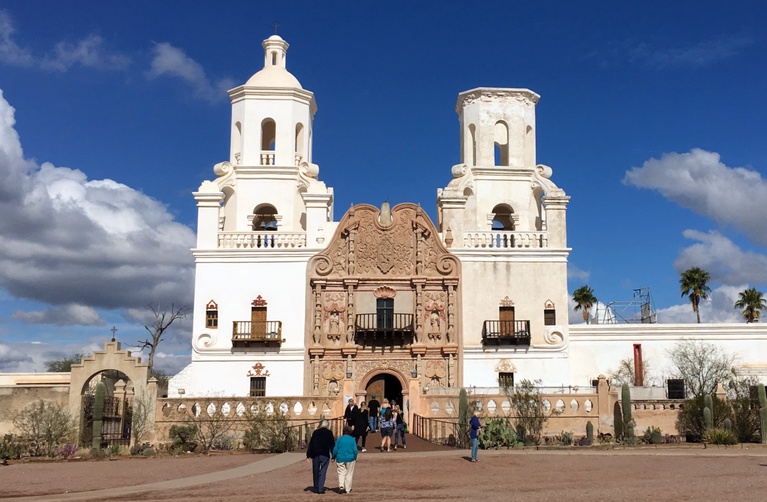
The inside is packed full of carved wooden statues and painted adornment. The main altar features much gold leaf, including on the manes of two interesting lions which flank the altar. They represent the Spanish royals, and it is thought that the carver, never having seen a lion, modeled them after pumas. There are elaborate side chapels to the left and right of the main altar.
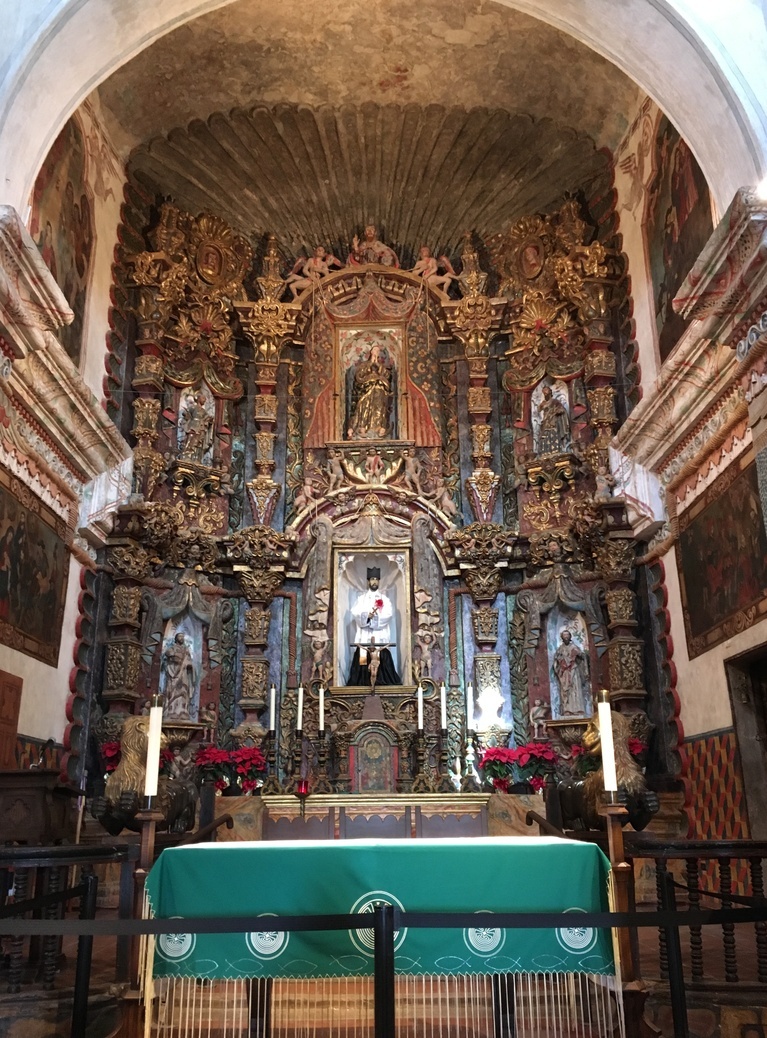
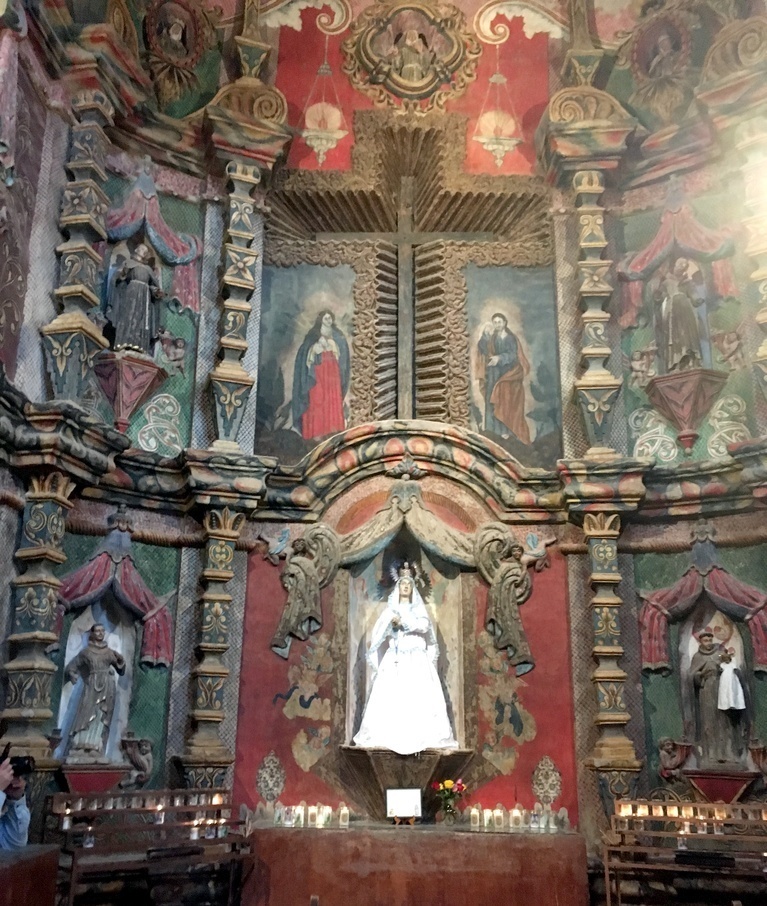
Outside, there is a pretty little courtyard. It once housed livestock for the mission dwellers.
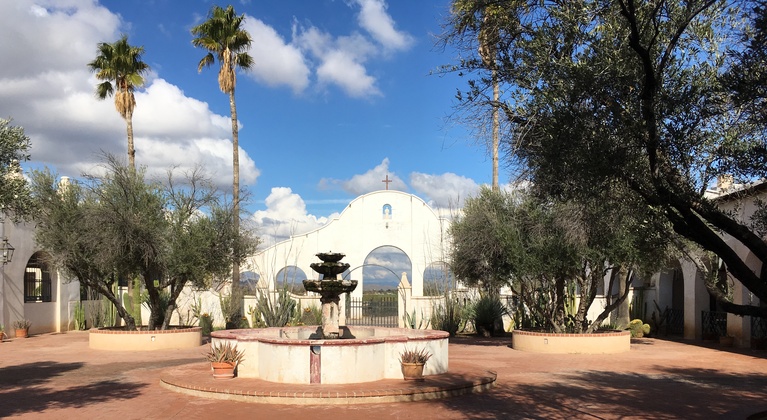
Davis-Monthan Air Force Base “Boneyard”
Tucson, with its dry climate and high clay content soil, makes a great place to park old equipment. So the Air Force parked over 4000 obsolete aircraft here, at Davis Monthan AFB. They will either be reactivated, stripped for parts, or scrapped, but in the meantime, they sit.
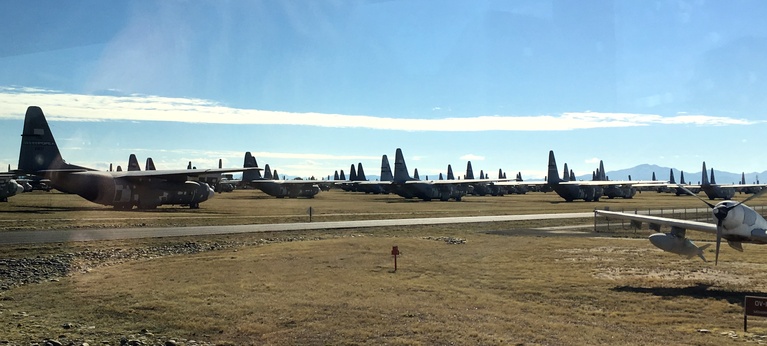
The Pima Air Museum offers bus tours of this gigantic parking lot. There is a line of featured aircraft with signs; these are discussed in detail. More impressive is observing row after row of the same model, all quietly awaiting their fate. The EA-6B below, is the inspiration for the squadron car from the Naval Air Museum we saw in Pensacola last year.
